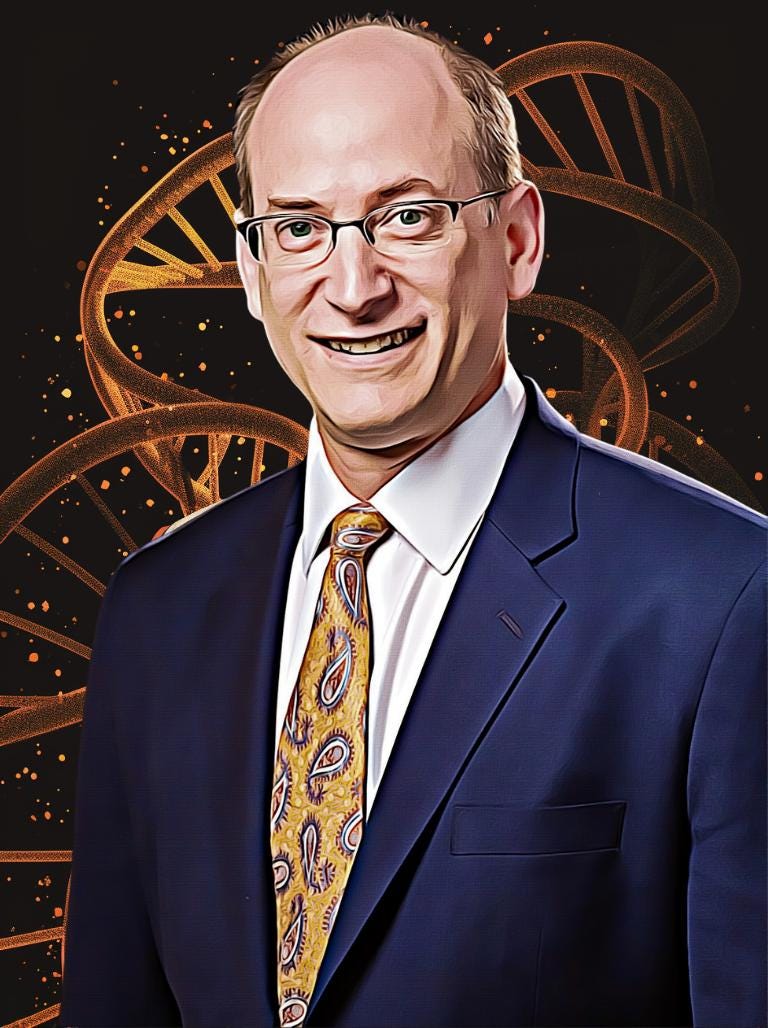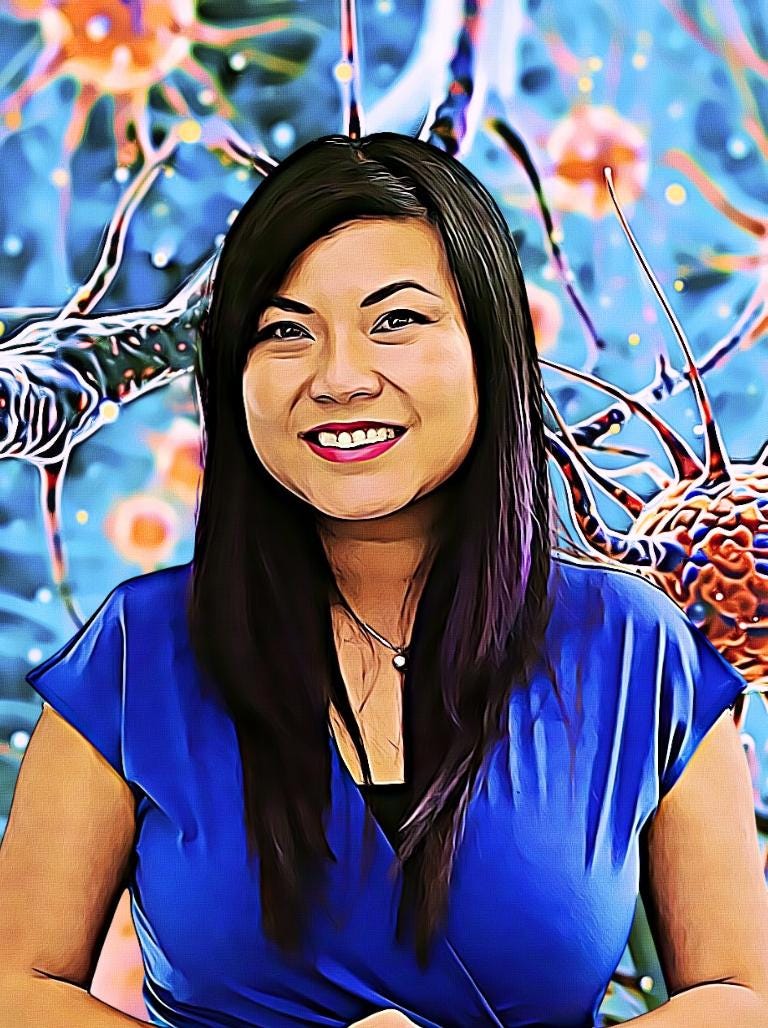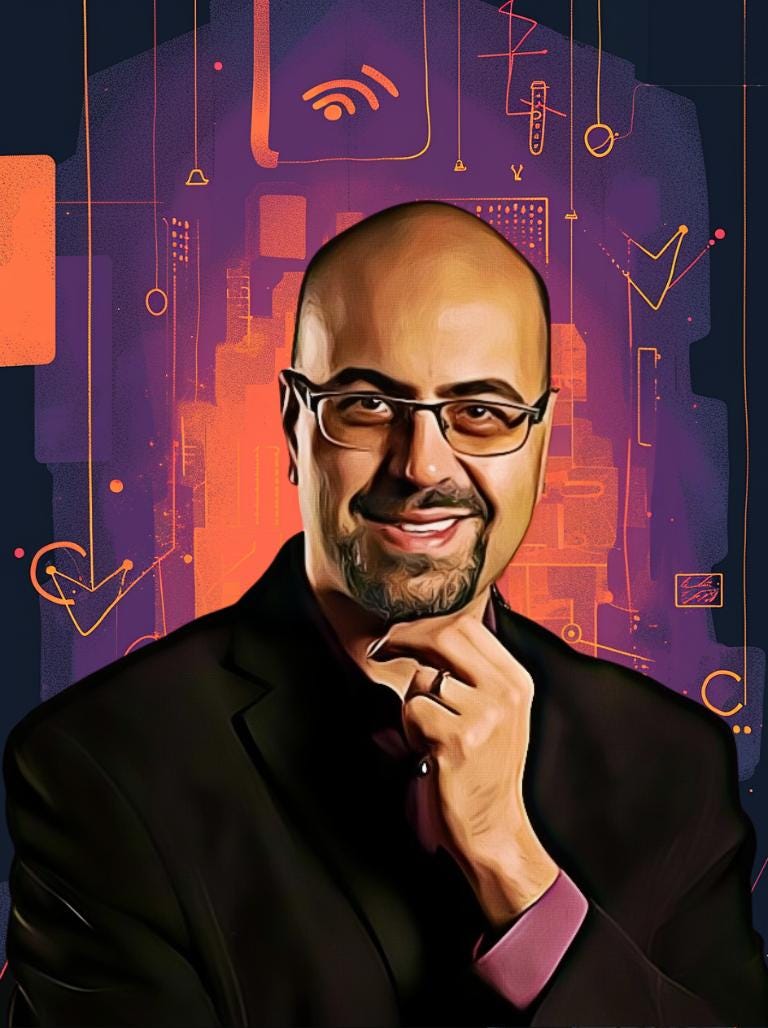Exploring the Next Generation of Mental Health Solutions
We asked academic research leaders in psychiatry & neurology
Academia is where many breakthroughs in mental health first emerge.
To kick off 2024, we asked research leaders in psychiatry and neurology: What research are you most excited about?” (note: we asked for a research area ideally outside their own).
Their insights offer a glimpse into a better future for mental illnesses.
Translating Genetic Insights into Treatments for Schizophrenia and Autism
John Krystal, Professor of Psychiatry, Neuroscience, and Psychology at Yale:
"I am particularly excited by efforts within psychiatry to translate insights related to rare gene mutations that have significant impact on the risk for schizophrenia and autism into biological mechanisms that might be targeted by disease modifying treatments."
Study: Schizophrenia-associated somatic copy-number variants from 12,834 cases reveal recurrent NRXN1 and ABCB11 disruptions. https://doi.org/10.1016/j.xgen.2023.100356
Brain Synchronization for Perception
Nicco Reggente, neuroscientist and co-founder of the Institute for Advanced Consciousness Studies:
“What I'm excited about that I'm not working on is probably individualized entrainment.” Aligning a person's unique alpha brainwave frequency can enhance learning and perceptual decision-making.
Study: Learning at your brain's rhythm: Individualized entrainment boosts learning for perceptual decisions. https://doi.org/10.1093/cercor/bhac426
EEG and Biometrics to Measure Psychiatric Conditions
Ahmed Tahseen, Physician-Scientist in Psychiatry of Yale School of Medicine:
“I’m generally stoked to see more EEG incorporated as proxy measures of psychiatric conditions, as well as using biometrics to diagnose in clinical trials!” Using these technologies as proxy measures in clinical trials could provide a deeper understanding of brain dynamics in mental health conditions.
Study: Technical and clinical considerations for electroencephalography-based biomarkers for major depressive disorder. https://doi.org/10.1038/s44184-023-00038-7
Psilocybin for Bipolar Disorder
Tahseen also highlighted promising clinical research showing psilocybin's benefits in treatment-resistant bipolar disorder. Given few options for intractable bipolar disorder, psychedelics could provide a lifeline for patients in need of innovation.
Study: Single-dose synthetic psilocybin with psychotherapy for treatment-resistant bipolar type II major depressive episodes. https://doi.org/10.1001/jamapsychiatry.2023.4685
Microglia and Neuron Communication
Denise Cai, Associate Professor of Neuroscience at Icahn School of Medicine at Mount Sinai:
Denise highlighted her colleagues’ work including research on microglia in the brain and its impact on psychiatric disorders, neurodegeneration, and brain health. Microglia are immune-like brain cells that may influence learning, memory, and neuron well-being.
Study: Synapse-specific roles for microglia in development: New horizons in the prefrontal cortex. Frontiers in Molecular Neuroscience, 15. https://doi.org/10.3389/fnmol.2022.965756
Simulating Brain Function
Ed Boyden, Professor in Neurotechnology at Massachusetts Institute of Technology:
Ed is most interested in research exploring how to simulate brain function which could provide foundational insights into mental health and behavior.
Study: The complete neuronal input-output functions project. Overview here.
Generative AI for Behavioral Therapy
Dr. Shebani Sethi, Clinical Assistant Professor in Psychiatry and Behavioral Sciences at Stanford:
“Generative AI is being developed and applied to creating behavioral therapy programs to treat a range of mental and physical health conditions. By tailoring interventions to individual mental health and lifestyle patterns, AI systems could improve patient adherence and efficacy of existing treatments.”
Study: An introduction to generative artificial intelligence in mental health care: Considerations and guidance. https://doi.org/10.1007/s11920-023-01477-x.
Real-time Mitochondrial Function Monitoring
Dr. Sethi also expressed interest in real-time mitochondrial function monitoring.
“Real-time mitochondrial function monitoring, when used in conjunction with targeted interventions, is revolutionizing how we approach metabolic disorders. Being able to adjust cellular energy dynamics would open countless doors to new treatments.”
Study: Mitochondria-wide association study observed significant interactions of mitochondrial respiratory and the inflammatory in the development of anxiety and depression. https://doi.org/10.1038/s41398-023-02518-y
Psychiatry, Psychedelics, and Climate Action
AZA Allsop, Assistant Professor, artist, neuroscientist, and psychiatrist at Yale:
“I am excited about the intersection of psychiatry and climate action. As we better understand how the brain supports nature-relatedness and how psychedelics can enhance this property, we will have a new avenue to facilitate climate action and avert the most severe ramifications of climate change.”
Study: How nature nurtures: Amygdala activity decreases as the result of a one-hour walk in nature. https://www.nature.com/articles/s41380-022-01720-6
Passive Smartphone Monitoring
Alik Widge, Assistant Professor and Psychiatrist at University of Minnesota:
“I would say, outside my own field, passive smartphone monitoring. The possibility of providing individual early warning signs could really change how we think about risk assessment.”
Study: Clinician and patient perspectives on the use of passive mobile monitoring and self-tracking for patients with serious mental illness: User-centered approach. https://doi.org/10.2196/46909
This overview from key opinion leaders in psychiatry and neurology reveals how dynamic the landscape is for emerging research and potential breakthroughs in mental health.
What research areas are you most excited about? Comment below or email us at hi@psymed.ventures.








